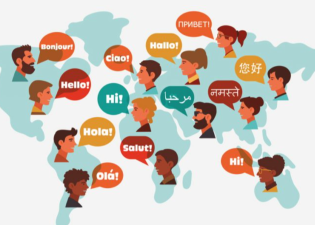Why Language Is the Heart of Every Culture
Language and culture are deeply and inextricably linked. Language is more than just a tool for communication; it profoundly influences how a person understands culture, identifies with themselves, and connects with the world.
Language is at the core of cultural inheritance, and culture influences language evolution; the two are closely linked. Language plays an indispensable role in cultural transmission. Renowned linguist Ken Hale has explored the close connection between language and culture, defining the core of the relationship between language and culture. He pointed out that language carries a deep cultural imprint, and once a language disappears, so too does the associated culture.
- Language is a carrier of culture:
As the primary tool for human communication, language not only conveys information but also carries rich cultural connotations. Historical stories, traditional customs, and values are all preserved and transmitted through language.
- Language is the key to cultural inheritance:
Culture is passed down from generation to generation through language. People use language to pass on cultural knowledge, beliefs, and values to the next generation, thereby ensuring cultural continuity and stability. 3. Language reflects cultural characteristics:
Each language has its own unique grammatical structure, vocabulary, and expressions. These characteristics often reflect the thinking, values, and lifestyles of the cultural groups that speak it. Therefore, language is an important window into studying culture.
- Language promotes cultural exchange and integration:
With the progress of globalization, exchanges between different cultures are becoming increasingly frequent. As a bridge for cultural exchange, language not only promotes the spread of culture but also promotes cultural integration and innovation.
The symbolic significance of language differences
- The legend of the "Tower of Babel" recorded in the Book of Genesis reveals a profound metaphor behind language differences. In this story, people are unable to collaborate on the construction of the Tower of Babel because they speak different languages, ultimately leading to the failure of the project. This story not only has symbolic significance but also profoundly reflects the central role of language in human society. Language differences are not only a barrier to communication; they also profoundly reflect the differences between human societies and civilizations. Language, seemingly a simple tool for communication, actually contains profound cultural connotations. It not only shapes people's thinking patterns but also, to a certain extent, determines the direction of human development. Therefore, when we explore the root causes of differences between civilizations, ethnicities, and even religious beliefs, language is undoubtedly a crucial factor that cannot be ignored.
The Specific Influence of Language and Culture
- Language influences cultural values, and the two mutually shape each other, directly impacting social life. Language and culture are closely linked, influencing and shaping each other. As Ravi Zacharias has argued, changes in language often reflect the evolution of cultural values. In fact, the concrete manifestation of the integration of language and culture is that language is closely intertwined with every aspect of human social life. Understanding and integrating into the surrounding cultural environment is crucial to learning a language. At the same time, language continuously constructs and enriches the connotations of culture, promoting its progress and development.
Language and culture shape personal values and identity, and spread culture. Language and culture play an indispensable role in shaping individual identity. Culture, as the cornerstone of communication, not only teaches us how to communicate with others but also subtly shapes our values and morals. It brings like-minded people closer together, fosters a strong sense of belonging, and thus deepens the connection between individuals and society. Language, on the other hand, is more like a sharp tool through which we can spread and share our culture.





